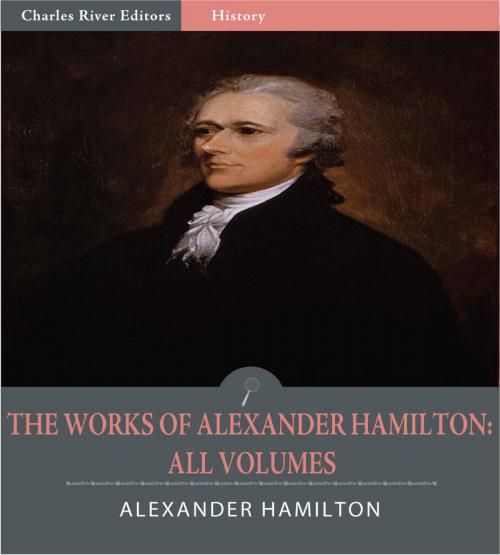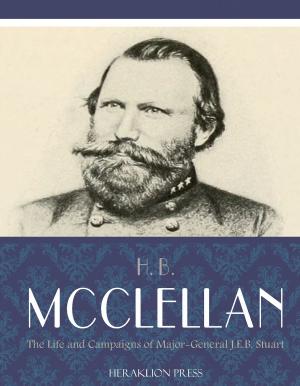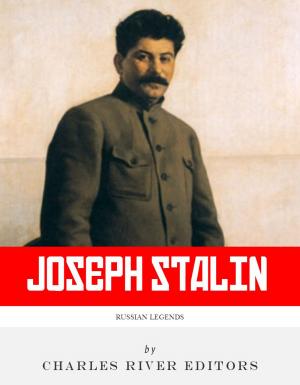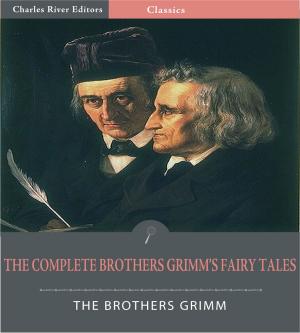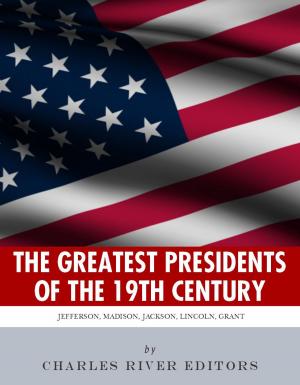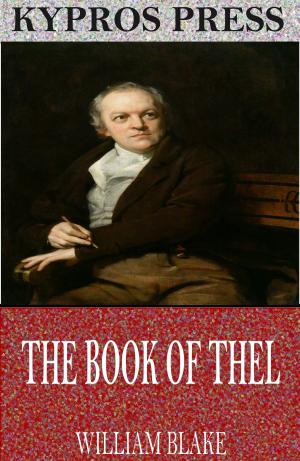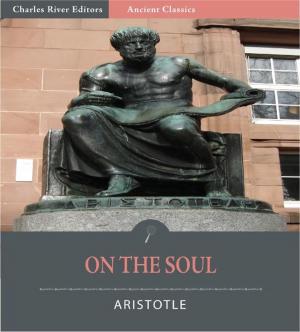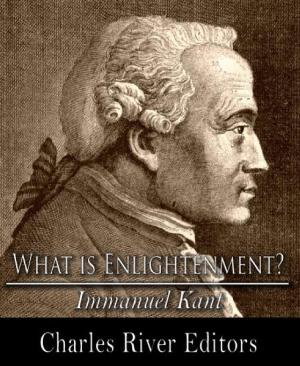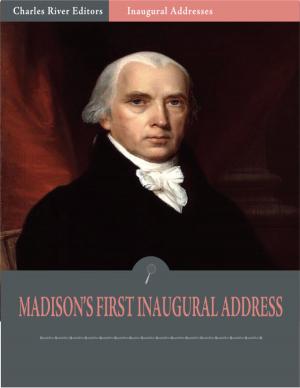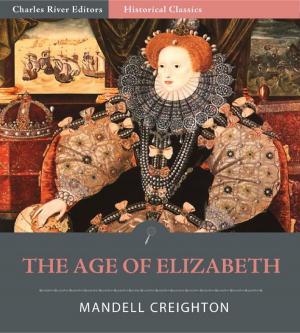The Works of Alexander Hamilton: All Volumes (Illustrated Edition)
Nonfiction, History, Americas, United States, Colonial Period (1600-1775), Revolutionary Period (1775-1800), Social & Cultural Studies, Political Science, Politics, History & Theory| Author: | Alexander Hamilton, James Madison & John Jay | ISBN: | 9781475303360 |
| Publisher: | Charles River Editors | Publication: | March 13, 2012 |
| Imprint: | Language: | English |
| Author: | Alexander Hamilton, James Madison & John Jay |
| ISBN: | 9781475303360 |
| Publisher: | Charles River Editors |
| Publication: | March 13, 2012 |
| Imprint: | |
| Language: | English |
* Contains thousands of pages of Hamiltons writings, including classic American documents such as the Federalist Papers, the Constitution, and the Articles of Confederation. *Includes all of Hamiltons personal correspondence, including hundreds of letters and speeches. * Illustrated with over a dozen pictures of Hamilton, his life and work, as well as of the Founding Fathers. *Includes a Table of Contents for every Volume and each work. Unfortunately, one of the best known aspects of Alexander Hamiltons (1755-1804) life is the manner in which he died, being shot and killed in a famous duel with Aaron Burr in 1804. But Hamilton became one of the most instrumental Founding Fathers of the United States in that time, not only in helping draft and gain support for the U.S. Constitution but in also leading the Federalist party and building the institutions of the young federal government as Washingtons Secretary of Treasury. Hamilton is also well remembered for his authorship, along with John Jay and James Madison, of the Federalist Papers. The Federalist Papers sought to rally support for the Constitutions approval when those three anonymously wrote them, but for readers and scholars today they also help us get into the mindset of the Founding Fathers, including the Father of the Constitution himself. They also help demonstrate how men of vastly different political ideologies came to accept the same Constitution. Once the Constitution was ratified and President Washington took office, one of the biggest battles was over the chartering of a national bank, a topic that seems trivial today given the size and scope of the federal government. At the founding, however, the Southern states and Thomas Jeffersons Democratic Party were skeptical of the necessity of a national bank, while Hamiltons Federalists insisted that it would help the nation pay off its debts and manage its finances. Eventually Hamilton won out, but the First U.S. Bank, located in Philadelphia, was nonetheless run by a private company, ensuring limits on government control.Hamilton was a prominent politician and a prolific writer who had his hand in everything from the Constitution, the Federalist Papers, and President Washingtons speeches, as well as an influential voice in policy and the formation of initial political parties. His works were compiled into a giant 12 volume series by Henry Cabot, which included everything from his speeches to his private correspondence. This edition of The Works of Alexander Hamilton: All Volumes includes all of Hamiltons classic Federalist Papers, the Constitution, the Articles of Confederation, and all of his speeches, letters, and papers. It is specially formatted with a Table of Contents and is illustrated with over a dozen pictures of Washington and other important individuals during the founding of America.
* Contains thousands of pages of Hamiltons writings, including classic American documents such as the Federalist Papers, the Constitution, and the Articles of Confederation. *Includes all of Hamiltons personal correspondence, including hundreds of letters and speeches. * Illustrated with over a dozen pictures of Hamilton, his life and work, as well as of the Founding Fathers. *Includes a Table of Contents for every Volume and each work. Unfortunately, one of the best known aspects of Alexander Hamiltons (1755-1804) life is the manner in which he died, being shot and killed in a famous duel with Aaron Burr in 1804. But Hamilton became one of the most instrumental Founding Fathers of the United States in that time, not only in helping draft and gain support for the U.S. Constitution but in also leading the Federalist party and building the institutions of the young federal government as Washingtons Secretary of Treasury. Hamilton is also well remembered for his authorship, along with John Jay and James Madison, of the Federalist Papers. The Federalist Papers sought to rally support for the Constitutions approval when those three anonymously wrote them, but for readers and scholars today they also help us get into the mindset of the Founding Fathers, including the Father of the Constitution himself. They also help demonstrate how men of vastly different political ideologies came to accept the same Constitution. Once the Constitution was ratified and President Washington took office, one of the biggest battles was over the chartering of a national bank, a topic that seems trivial today given the size and scope of the federal government. At the founding, however, the Southern states and Thomas Jeffersons Democratic Party were skeptical of the necessity of a national bank, while Hamiltons Federalists insisted that it would help the nation pay off its debts and manage its finances. Eventually Hamilton won out, but the First U.S. Bank, located in Philadelphia, was nonetheless run by a private company, ensuring limits on government control.Hamilton was a prominent politician and a prolific writer who had his hand in everything from the Constitution, the Federalist Papers, and President Washingtons speeches, as well as an influential voice in policy and the formation of initial political parties. His works were compiled into a giant 12 volume series by Henry Cabot, which included everything from his speeches to his private correspondence. This edition of The Works of Alexander Hamilton: All Volumes includes all of Hamiltons classic Federalist Papers, the Constitution, the Articles of Confederation, and all of his speeches, letters, and papers. It is specially formatted with a Table of Contents and is illustrated with over a dozen pictures of Washington and other important individuals during the founding of America.
